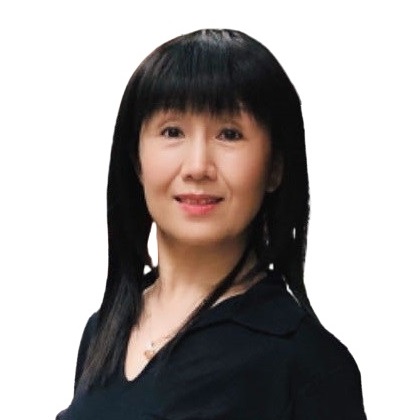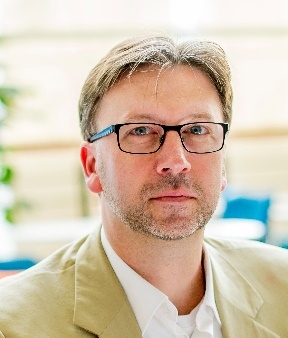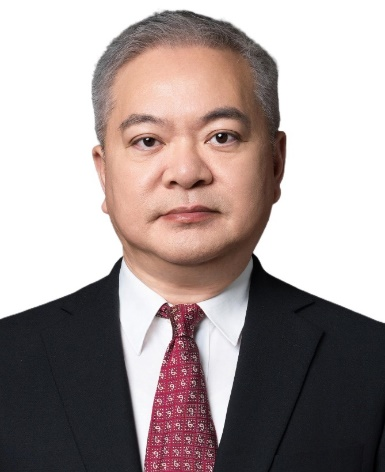| Prof. Yanjie SONGThe Education University of Hong Kong Research area: AR, VR, the metaverse, AI in education, and multimodal learning analytics Brief: Professor Yanjie Song is Associate Co-Director of the Academy for Applied Policy Studies and Education Futures (AAPSEF), and Associate Director of boththe Centre for Immersive Learning and Metaverse in Education (CILME) and the Centre for Excellence in Learning and Teaching (CELT). She holds a PhD from The University of Hong Kong and an MEd from the University of Leeds. Her research spans AR, VR, the metaverse, AI in education, and multimodal learning analytics. She has led the development of award-winning platforms including VocabGo, Learningverse, LearningverseVR, EmoCare, iChat, and Ai-APP, with multiple patents secured. Prof Song has received competitive research funding and holds leadership roles in APSCE. She actively contributes to international academic conferences and was ranked among the top 2%in the Stanford listofthe world’smost-cited scientists in education in recent years Title: Metaverse in Education with Generative AI: Development and Applications Abstract: This presentation explores how generative AI is transforming education in immersive environments. It introduces three platforms developed by the speaker’s team: Learningverse, a 3D metaverse platform that uses digital humans for interactive, collaborative learning; LearningverseVR, a virtual reality system with AI agents for engagement and personalisation; and EmbodyVerse, a mixed reality space for embodied STEM teaching. Drawing on empirical examples, the talk highlights how these platforms enhance learner engagement, improve performance, and enable new forms of personalised and collaborative learning. |
| Prof. Dave Towey(IEEE/ACM Senior Member)University of Nottingham Ningbo China, China Research area: Metamorphic Testing, Adaptive Random Testing, Technology-enhanced Teaching & Learning, Fault Localization, Computer Security Brief: Professor Dave Towey received the BA and MA degrees in computer science, linguistics, and languages from the University of Dublin, Trinity College, Ireland; the MEd degree in education leadership from the University of Bristol, U.K.; and the PhD degree in computer science from The University of Hong Kong, Hong Kong S.A.R., China. He has been with University of Nottingham Ningbo China (UNNC) since 2013, where he serves as the head of the School of Computer Science, and as deputy director of the International Doctoral Innovation Centre. He previously served as the associate dean of education and student experience for the Faculty of Science and Engineering. His current research interests include software testing (especially adaptive random testing, for which he was amongst the earliest researchers who established the field, and metamorphic testing) and technology-enhanced education. He co-founded the ICSE International Workshop on Metamorphic Testing in 2016. He is a fellow of the HEA, and a senior member of the ACM and IEEE. Title: Beyond the Oracle: Doing and Teaching Software Engineering Differently with Metamorphic Thinking |
| Prof. Jianping YinDongguan University of Technology, China Research area: Algorithm design and analysis, pattern recognition and machine learning Brief: Jianping Yin received the Ph.D. degree from the National University of Defense Technology (NUDT), China in 1990. He was a postdoctoral researcher in Nanjing University, China from December, 1990 to January, 1993, and is currently a Distinguished Professor with the Dongguan University of Technology, China. His research interests include design and analysis of algorithm, pattern recognition and machine learning. He was a recipient of the National Famous Teacher, National Excellence Teacher, National Excellence Young Teacher in College and University, National Excellence Dissertation' Supervisor, National Excellence Education Achievement of China. He was the chairman of the Theoretical Computer Science Technical Committee of the China Computer Federation, the member of the Artificial Intelligence and Pattern Recognition Technical Committee of the China Computer Federation, and is currently the deputy director of Steering Committee on the teaching of computer courses in university, China. He served as the Program Committee co-chair, Steering Committee co-chair, General Chair, Publicity chair, Social Network Chair, Program Committee senior member for dozens of conferences. He supervised dozens of excellent doctors and masters, and taught fundamentals of computer, design and analysis of algorithm, the beauty of mathematics and the way of computation for undergraduate student, computational complexity, artificial intelligence for Ph.D. student. He was supported by the National Key R&D Program of China and the National Science Foundation of China, was the chief editor of the branch of theoretical computer science in the Chinese Encyclopedia of Computer Science and Technology (third edition), and one of the translators of Introduction to Algorithm (third edition) and Artificial Intelligence: A Modern Approach (third edition). He has published more than 200 peer-reviewed papers, including IEEE T-PAMI, IEEE T-KDE, IEEE T-IP, IEEE T-NNLS, IEEE T-C, IEEE T-CSVT, IEEE T-WC, PR, TOSN, NeurIPS, AAAI, IJCAI, ACM MM, and MICCAI. Title: Research on AI General Education and AI-enabled Education |
Updating~



